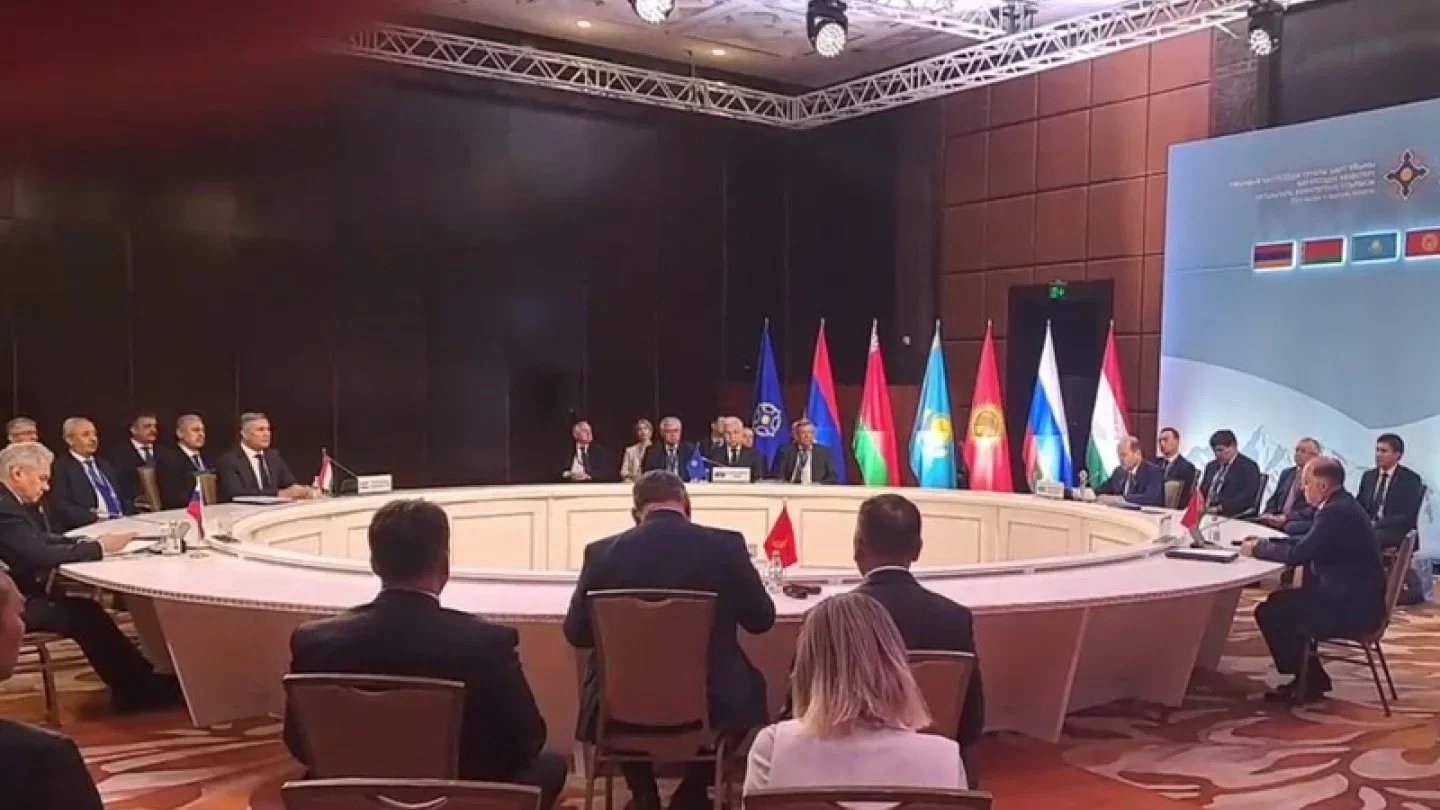CSTO Secretary General Tasmagambetov Spoke About Meeting in Almaty
 Photo: Cronos.Asia
Photo: Cronos.Asia
The Secretary General of the organization, Imangali Tasmagambetov, spoke about the meeting of the Committee of Secretaries of Security Councils of the Collective Security Treaty Organization in Almaty. They adopted the CSTO Targeted Interstate Program on the Tajik-Afghan border, which had been discussed for over 10 years, reports Orda.kz.
Imangali Tasmagambetov has spoken with Cronos.Asia Analytical Center. Tasmagambetov said that the negotiations took place without Armenian participation. Imangali Tasmagambetov called the discussion on the “Targeted CSTO Interstate Program to Strengthen The Tajik-Afghan Border” a “difficult matter.”
The matter of the CSTO Targeted Interstate Program, initiated in 2013 and not implemented for 10-11 years for objective reasons, was difficult. But, despite the general geopolitical situation that has developed in the area of responsibility of our Organization, we were able to make a decision both at the Council of Defense Ministers and with the secretaries of the security councils. And the Collective Security Council finally signed this program, said Imangali Tasmagambetov.
Meanwhile, he also touched base on the absence of Armenian representatives. Tasmagambetov stated that the absence did not prevent reaching the consensus necessary to make a decision on the target program. The CSTO Secretary General said Armenia had agreed to adopt the target program, thereby supporting it, and a consensus was reached.
Cronos.Asia reports that at the meeting of the Council of the CSTO Parliamentary Assembly in Almaty on June 3, Secretary General Imangali Tasmagambetov emphasized that the Republic of Armenia remains a full-fledged CSTO member despite significantly reducing its participation in the organization’s events over the past year.
Tasmagambetov also noted that it would be helpful for all CSTO participants if Armenia's political leadership clarified the prospects for the country’s participation in the organization.
Original Author: Olga Ibraeva
DISCLAIMER: This is a translated piece. The text has been modified, the content is the same. Please refer to the original piece in Russian for accuracy.
Latest news
- Oil Smuggling Trial Begins in Aqtau Over Seized Tanker
- Armenian Foreign Ministry Open to Outsourcing Transport Corridor Oversight
- A Second Kazakhstan-Born Individual Convicted of Treason in Russia This Month
- National Fund Council: Toqayev Receives Tie-Breaking Vote Power
- Kazakhstani Caught With Fake Passport in Bulgaria Fears Extradition
- Rubio and Lavrov Hold Talks at ASEAN Summit Amid Escalation in Ukraine
- Asset Recovery: Price on De Beers Earrings Cut by 23 Million Tenge
- Pashinyan and Aliyev Discuss Normalization Efforts in Abu Dhabi
- What Will Be Considered Stalking? The Ministry of Justice Explains
- Kazakhstan Prepared to Build Karachaganak Gas Plant With Alternative Contractor if Needed
- Former Russian Orthodox Priest Launches Petition for Constantinople Church Presence in Kazakhstan
- Asset Recovery and Management Company Launches New Auction for Land in Nazarbayev’s Hometown
- Olzhas Bektenov Discusses Digital Innovation and Travel Safety with Yandex Qazaqstan
- Man Detained over Attempted Arson at House of Ministries Entrance
- Producer Says Zemfira Concert Canceled Due to Poor Planning
- Kazakhstan's Energy Minister Comments on Russia–China Gas Pipeline via Kazakhstan
- UN Working Group Says Gulnara Karimova Was Arbitrarily Detained, Uzbekistan Responds
- Perizat Kairat Claims Abuse in Detention
- U.S. Senate Considers Julie Stufft for Ambassador to Kazakhstan
- Leviathan vs. Orda: Gulnara Bazhkenova Speaks Out on Efforts to Seize Her Media and Threats to Her Life

